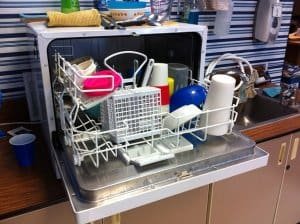When it comes to taking care of your little one, ensuring their health and safety is of utmost importance. One area that often raises questions is the proper sterilization of baby bottles. As a parent, you may wonder if it is necessary to sterilize baby bottles after running them through the dishwasher. In this article, we will explore this topic in detail and provide you with valuable insights to help you make an informed decision.
Table of Contents
Why Sterilization Matters for Baby Bottles?
Babies have delicate immune systems that are still developing, making them more susceptible to harmful bacteria and germs. Sterilizing baby bottles helps eliminate these microorganisms, ensuring that the bottles are safe for your little one to use. Proper sterilization reduces the risk of infections, digestive issues, and other health complications that can arise from contaminated bottles.
Dishwasher and Its Cleaning Capabilities
Dishwashers are a convenient and time-saving appliance that many households rely on for cleaning dishes, utensils, and other kitchen items. These machines use hot water and detergent to remove dirt and bacteria. While dishwashers are effective at cleaning, they may not achieve the same level of sterilization as dedicated sterilization methods.
Understanding Sterilization Methods
Sterilization involves killing or eliminating all forms of microorganisms, including bacteria, viruses, and fungi. There are various methods available for sterilizing baby bottles, including boiling, steam sterilizers, and chemical sterilizing solutions. Each method has its advantages and considerations.
Sterilizing Baby Bottles After Dishwasher: Is it Necessary?
The question arises: Is it necessary to sterilize baby bottles after running them through the dishwasher? The answer depends on several factors, such as your baby’s age, overall health, and whether they have any specific medical conditions. In general, if your baby is healthy and older than six months, sterilizing bottles after each dishwasher cycle may not be necessary. However, for newborns and infants with compromised immune systems, it is recommended to continue sterilizing bottles even after they have been through the dishwasher.
Factors to Consider
- Baby’s Age: Newborns and infants under six months old are more susceptible to infections and may require additional sterilization.
- Health Conditions: If your baby has any medical conditions or a weakened immune system, extra precautions, including post-dishwasher sterilization, may be necessary.
- Water Quality: The quality of the water used in your dishwasher can impact the cleanliness of the bottles. If you have concerns about the water source, sterilizing after the dishwasher can provide an extra layer of safety.
Alternative Sterilization Methods
If you decide that additional sterilization is required, there are alternative methods you can consider. These methods include boiling the bottles, using steam sterilizers, or utilizing chemical sterilizing solutions. It’s important to follow the manufacturer’s instructions and guidelines for each method to ensure effective sterilization.
Tips for Effective Sterilization
To ensure proper sterilization, follow these tips:
- Clean bottles thoroughly before sterilization.
- Use a bottle brush to reach all areas of the bottle.
- Use hot water and dish soap to remove any remaining residue.
- Rinse bottles thoroughly to remove all soap.
- Follow the recommended sterilization method.
- Allow bottles to air dry in a clean and hygienic environment.
Signs of an Unclean Bottle
It’s crucial to be aware of signs that indicate a bottle may not be properly clean or sterilized. These signs include:
- Foul Odor: If the bottle has a persistent unpleasant smell, it may not be adequately cleaned.
- Residue or Cloudiness: Any residue or cloudiness in the bottle, nipples, or caps indicates that cleaning was not thorough.
- Mold or Mildew: If you notice any mold or mildew in or around the bottle, it should not be used and should be properly cleaned or discarded.
How often should I sterilize baby bottles?
It is recommended to sterilize bottles until your baby is at least six months old. After that, sterilization may be less frequent but still important for certain circumstances.
Can I sterilize plastic bottles?
Yes, plastic baby bottles can be sterilized using various methods, such as boiling or steam sterilization.
Can I reuse bottle sterilizing solutions?
Sterilizing solutions should be used according to the manufacturer’s instructions. Reusing the solutions beyond their recommended usage may not provide effective sterilization.
Do I need to sterilize breastfeeding equipment?
Yes, breastfeeding equipment, such as breast pump parts and storage containers, should be properly sterilized to maintain cleanliness and minimize the risk of contamination.
Conclusion
Maintaining clean and sterile baby bottles is crucial for your little one’s health and well-being. While dishwashers provide effective cleaning, additional sterilization may be necessary, especially for newborns and infants with compromised immune systems. Factors such as age, health conditions, and water quality should be considered when deciding whether to sterilize bottles after running them through the dishwasher. By following proper sterilization methods and regularly checking for signs of an unclean bottle, you can ensure a safe and healthy feeding experience for your baby.

